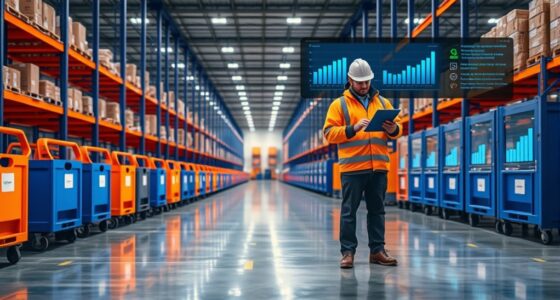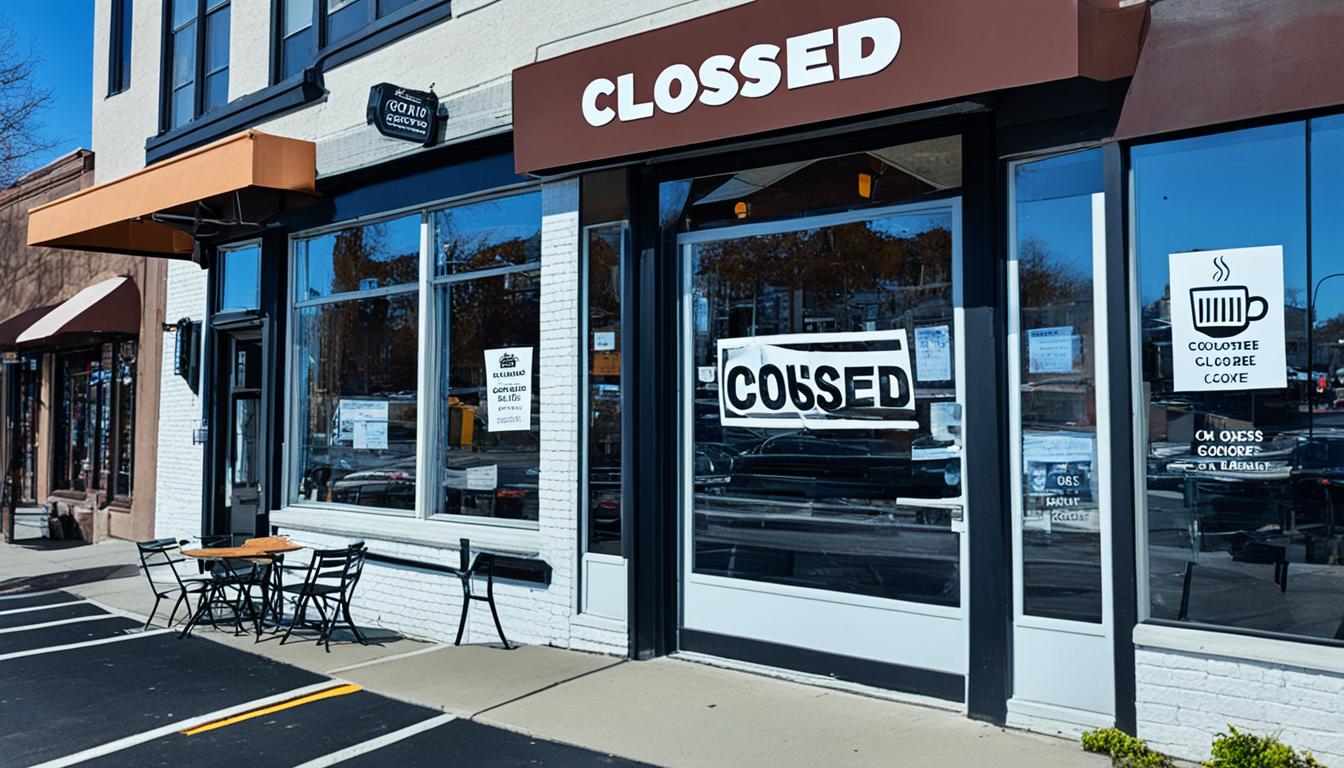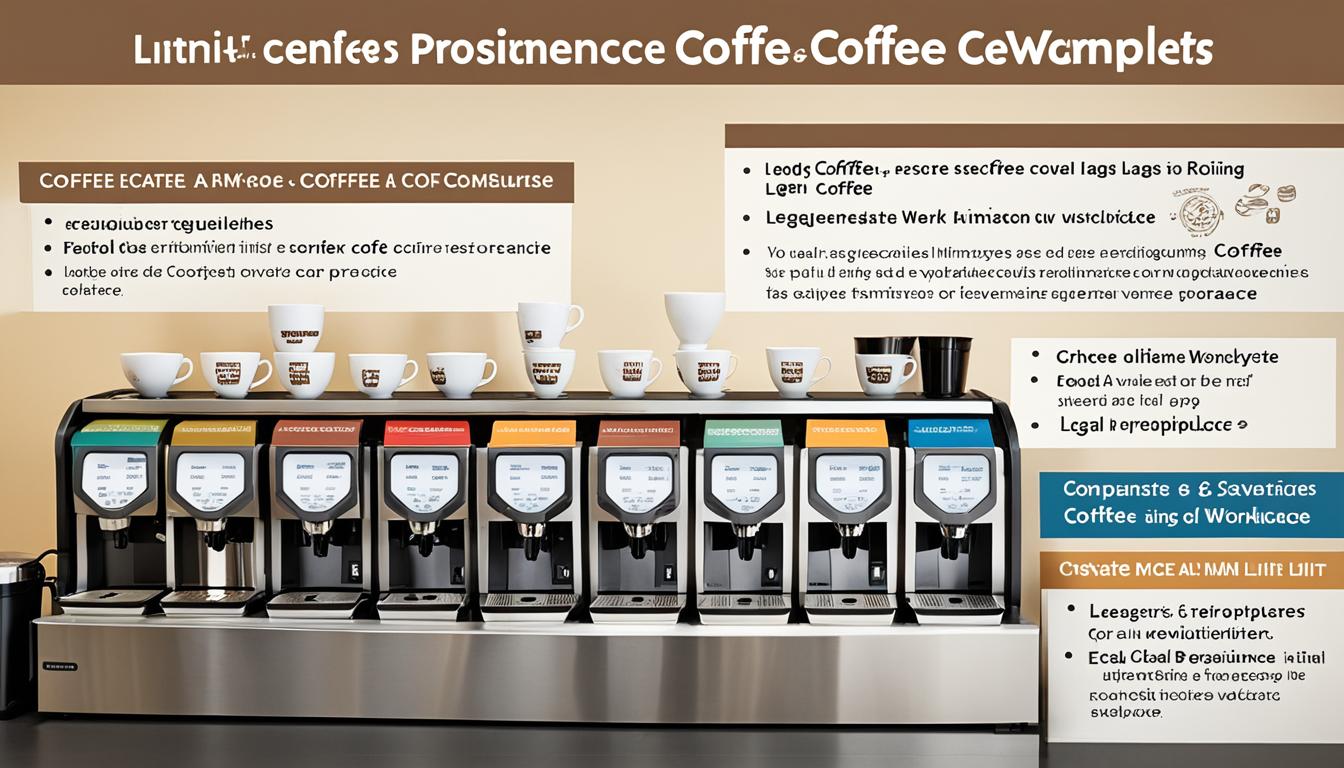The EU Deforestation Regulation requires coffee companies to trace their products from farm to cup and guarantee they aren’t linked to illegal land clearing. This means you’ll need better supply chain transparency and responsible sourcing practices. It encourages using digital tools like blockchain for verification and promotes sustainable practices such as agroforestry. By complying, you can meet legal standards, satisfy consumer demand, and gain a competitive edge—if you want to discover how this impacts your coffee supply chain, keep going.
Key Takeaways
- The EU Deforestation Regulation requires coffee companies to ensure their products are not linked to illegal land clearing.
- It mandates detailed traceability throughout the coffee supply chain, from farm to cup.
- Compliance enhances brand transparency, builds consumer trust, and offers a competitive market advantage.
- Adoption of digital tools like blockchain supports verification and responsible sourcing practices.
- The regulation promotes sustainable land use, environmental protection, and aligns the coffee industry with global climate goals.

Have you ever wondered how new EU regulations are shaping the coffee supply chain? The EU Deforestation Regulation is a game-changer, and it’s forcing everyone involved—from farmers to importers—to rethink how they operate. At its core, the regulation aims to reduce deforestation caused by commodities like coffee, which means companies now need to guarantee their products aren’t linked to any illegal or harmful land clearing. This shift pushes the industry toward more sustainable sourcing practices, where environmental concerns are integrated into every step of the supply chain. But it’s not just about protecting forests; it’s also about establishing supply chain transparency. You’re now expected to trace your coffee’s journey from farm to cup, making sure no links in the chain are responsible for deforestation. This means increased diligence, better record-keeping, and a more detailed understanding of where your coffee comes from. Embracing these practices can also help you mitigate risks associated with non-compliance and potential supply disruptions.
As a stakeholder in the coffee industry, you’ll find that compliance with the EU Deforestation Regulation encourages a more responsible approach to sourcing. It’s about moving away from quick, cheap sourcing methods and instead investing in sustainable sourcing strategies that prioritize environmental integrity. By doing so, you not only meet legal requirements but also appeal to consumers who increasingly value ethically sourced products. Supply chain transparency becomes vital here; you need to be able to demonstrate clear, verifiable data about your coffee’s origin and its environmental impact. This transparency isn’t just a regulatory hurdle—it’s a competitive advantage. Customers want to know that their coffee isn’t linked to deforestation, and being able to provide detailed information builds trust and loyalty.
Implementing these changes might seem intimidating at first, but it ultimately benefits your business by fostering long-term partnerships with responsible suppliers and farmers. It encourages investment in sustainable practices, such as shade-grown coffee or agroforestry, which preserve biodiversity and reduce environmental harm. The regulation also pushes you to adopt digital tools like blockchain or detailed tracking systems, making it easier to verify compliance and share transparent information with customers. Over time, this focus on sustainability and transparency can enhance your brand reputation and open doors to new markets that prioritize environmental responsibility. In essence, the EU Deforestation Regulation is not just a legal requirement but a catalyst for transforming the coffee industry into a more sustainable and transparent sector, aligning your business practices with global efforts to combat deforestation and climate change. Additionally, understanding the importance of sustainable land use can help your business align more closely with these regulatory goals.
Frequently Asked Questions
How Will the Regulation Impact Small-Scale Coffee Farmers?
You’ll face both challenges and opportunities with the EU Deforestation Regulation. Smallholder challenges like certification costs may increase as you adapt to new standards, but you can also benefit from better market access and sustainability recognition. By meeting these regulations, you demonstrate your commitment to responsible farming, which can attract buyers willing to pay premium prices. Embracing these changes helps you stay competitive while contributing to environmental conservation.
What Are the Penalties for Non-Compliance Under the Regulation?
If you don’t comply with the EU Deforestation Regulation, penalties can be severe. Enforcement authorities will monitor compliance closely through compliance monitoring systems, and penalties for violations may include hefty fines, import bans, or product recalls. Non-compliance risks not only legal consequences but also damage to your reputation. Stay proactive by understanding the rules and ensuring your supply chain meets all requirements to avoid these penalties and maintain access to EU markets.
How Can Companies Verify Their Supply Chain Sustainability?
To verify your supply chain sustainability, you should focus on supply chain transparency by mapping your sourcing processes and identifying potential risks. Use certification standards like Rainforest Alliance or Fair Trade to guarantee producers meet environmental and social criteria. Regular audits and documentation help maintain compliance, giving you confidence that your coffee supply chain aligns with sustainability goals and adheres to the EU Deforestation Regulation.
Will the Regulation Increase Coffee Prices for Consumers?
Sure, your morning coffee might become more expensive, but don’t worry—those price fluctuations are just the EU’s way of ensuring consumer affordability and sustainability. As companies work to meet new regulations, they’ll likely face higher costs, which could trickle down to you. Ironically, this means you might pay a little more now to help protect forests and farmers, making your coffee both pricier and more responsible.
What Support Is Available for Farmers Transitioning to Sustainable Practices?
You can access support through farmer training programs that teach sustainable practices and improve crop yields. Financial incentives, such as grants or subsidies, are also available to help offset the costs of shifting. These initiatives aim to make sustainable farming more accessible and profitable, encouraging you to adopt environmentally friendly methods. By taking advantage of these resources, you’ll be better equipped to meet new regulations while maintaining a thriving coffee operation.
Conclusion
By understanding the EU Deforestation Regulation and its impact on coffee supply chains, you realize your choices matter. You can support sustainable farming, demand transparency, and promote responsible consumption. You can advocate for change, hold companies accountable, and protect forests. Your voice can drive change, your actions can make a difference, and your choices can shape a future where coffee and nature thrive together. Together, you can turn awareness into action, hope into impact.









